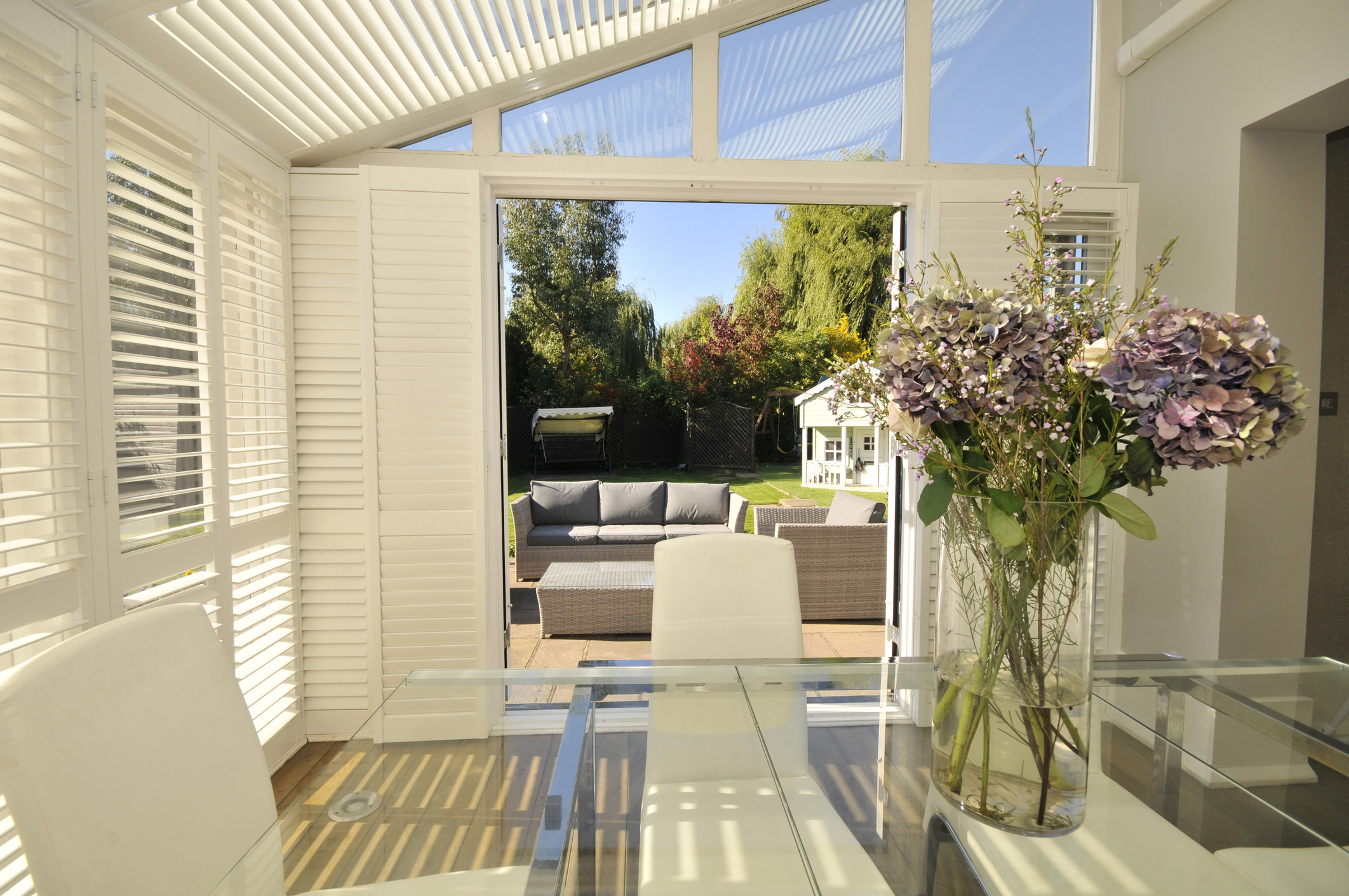Cheap Ways to Cool Your Home in the Summer
Take these smart steps to lower your house's energy bill and cool your home.


Profit and prosper with the best of Kiplinger's advice on investing, taxes, retirement, personal finance and much more. Delivered daily. Enter your email in the box and click Sign Me Up.
You are now subscribed
Your newsletter sign-up was successful
Want to add more newsletters?

Delivered daily
Kiplinger Today
Profit and prosper with the best of Kiplinger's advice on investing, taxes, retirement, personal finance and much more delivered daily. Smart money moves start here.

Sent five days a week
Kiplinger A Step Ahead
Get practical help to make better financial decisions in your everyday life, from spending to savings on top deals.

Delivered daily
Kiplinger Closing Bell
Get today's biggest financial and investing headlines delivered to your inbox every day the U.S. stock market is open.

Sent twice a week
Kiplinger Adviser Intel
Financial pros across the country share best practices and fresh tactics to preserve and grow your wealth.

Delivered weekly
Kiplinger Tax Tips
Trim your federal and state tax bills with practical tax-planning and tax-cutting strategies.

Sent twice a week
Kiplinger Retirement Tips
Your twice-a-week guide to planning and enjoying a financially secure and richly rewarding retirement

Sent bimonthly.
Kiplinger Adviser Angle
Insights for advisers, wealth managers and other financial professionals.

Sent twice a week
Kiplinger Investing Weekly
Your twice-a-week roundup of promising stocks, funds, companies and industries you should consider, ones you should avoid, and why.

Sent weekly for six weeks
Kiplinger Invest for Retirement
Your step-by-step six-part series on how to invest for retirement, from devising a successful strategy to exactly which investments to choose.
As the mercury rises, you may be looking for some cheap ways to cool your home, especially if you live in an area with high summer temperatures. No one can blame you — after all, the average summer electric bill in 2022 clocked in at $172 per month for the months of June, July and August, the U.S. Energy Information Administration reports. Plus, cooling costs are projected to tick up this summer due to higher retail prices and energy consumption.
But don’t sweat it. Here are eight low-cost steps you can take to keep your home cool and comfortable this summer – without cranking up your house’s air conditioning.
Cool your home with ceiling fans
Running ceiling fans can create a nice breeze, cooling a room by up to 4°F. Basic ceiling fans — including professional installation — start at around $150, according to HomeGuide. EnergyStar.gov offers a handy guide to choosing the correct ceiling fan size based on a room’s dimensions.
From just $107.88 $24.99 for Kiplinger Personal Finance
Become a smarter, better informed investor. Subscribe from just $107.88 $24.99, plus get up to 4 Special Issues

Sign up for Kiplinger’s Free Newsletters
Profit and prosper with the best of expert advice on investing, taxes, retirement, personal finance and more - straight to your e-mail.
Profit and prosper with the best of expert advice - straight to your e-mail.
Remember to turn off the ceiling fan when you leave a room to save energy.
Maximize shade
Closing drapes and curtains can help reduce heat from the sun. Specifically, medium-colored draperies with white-plastic backings reduce heat gain by 33% on average, according to the Department of Energy. Highly reflective blinds can also help block sunlight and keep your house cool.
Exterior shutters — made from wood, steel, aluminum, or vinyl — are effective at reducing heat gain. Window awnings can also lower heat gain in the summer by up to 65% on south-facing windows and 77% on west-facing windows, Energy.gov says.
Another low-cost way to block out the sun is to plant a small tree near your house, suggests home improvement expert Bob Vila. “You get the pleasure of watching it grow,” and the shade lowers your home’s heat gain, he says. Vila’s favorite type of tree for optimum shade? “The saucer magnolia tends to have a broad spread of leaves and is a spectacular early bloomer,” he says.
Replace inefficient lighting
Still lighting your home with incandescents? It’s time to change them out for LED bulbs, which consume at least 75% less energy, last up to 25 times longer, and produce roughly 75% less heat than incandescent lighting, according to Energy.gov and the EPA. The average household saves about $225 in energy costs annually by using LED lighting.
Change air filters
Replacing or cleaning filters routinely can help keep your AC system running efficiently. You should typically replace or clean air filters every three months — or more frequently if you have pets. Replacing a dirty filter with a clean one can reduce your air conditioner’s energy use by up to 15%, Energy.gov reports.
Keep up with air conditioner maintenance
Having a professional HVAC technician inspect your air conditioning system before the summer heat arrives will help you keep the system in good shape and running most effectively. An annual tuneup can help you avoid costly repairs.
Seal air leaks
Seal gaps or cracks around air vents, windows and doors to prevent cooled air from leaking out.
Get a programmable thermostat
Programmable thermostats provide greater control over your home’s cooling, allowing you to set a schedule based on your daily routine. Moreover, installing a programmable thermostat can shave 10% to 30% off your home’s annual heating and cooling bills EnergyStar says.
Pro tip: Set your thermostat a few degrees higher when no one is home so that you’re not paying to cool a vacant house. And see if your utility provider offers rebates or coupons for installing a programmable thermostat. For example, DTE Energy customers can qualify for a $50 rebate by buying a new Wi-Fi enabled thermostat.
Reduce oven use
High oven temperatures can heat up your kitchen, causing your air conditioner to work overtime to cool the space down. Instead, cook meals on your grill outside when the weather is nice.
Looking for a new grill at a modest price? Product reviews site Tom’s Guide says the Char-Broil Performance Series Silver 5-Burner, at just under $300, is the best budget gas grill on the market.
Profit and prosper with the best of Kiplinger's advice on investing, taxes, retirement, personal finance and much more. Delivered daily. Enter your email in the box and click Sign Me Up.

Daniel Bortz is the Personal Finance Editor at AARP and is based in Arlington, Va. His freelance work has been published by The New York Times, The Washington Post, Consumer Reports, Newsweek, and Money magazine, among others.
-
 Ask the Tax Editor: Federal Income Tax Deductions
Ask the Tax Editor: Federal Income Tax DeductionsAsk the Editor In this week's Ask the Editor Q&A, Joy Taylor answers questions on federal income tax deductions
-
 States With No-Fault Car Insurance Laws (and How No-Fault Car Insurance Works)
States With No-Fault Car Insurance Laws (and How No-Fault Car Insurance Works)A breakdown of the confusing rules around no-fault car insurance in every state where it exists.
-
 7 Frugal Habits to Keep Even When You're Rich
7 Frugal Habits to Keep Even When You're RichSome frugal habits are worth it, no matter what tax bracket you're in.